Things You Should Not Do in Your Commander Matches!
Commander tables, and multiplayer games in general, are known for their intense social interactions and chaotic matches, which many times stretch for hours. The rules in Commander are basically the same as in other MTG formats, but what makes it special and particularly attractive is the dynamic between players. This format encourages you to play creatively, use uncommon strategies, and reach "political" agreements as much as you can.
However, as there's always space for negotiation in this format, there's also space for intrigue and conflict. Certain behaviors and attitudes, despite being technically "allowed", if done repeatedly or recklessly, can create boring, annoying matches, and make players uncomfortable. Even if they seem fun or harmless at first, they can be very prejudicial to your table.
In this article, we'll discuss a few strategies and behaviors we consider quite unpleasant in multiplayer MTG matches. Our intention, however, is not to suggest any rigid set of conduct rules or something of that sort. Our goal is to simply call your attention to practices that, when done with no consideration for collective experiences, can ruin everyone's day. And remember, your opponents, who are often your friends as well, put in the effort to get out of their homes to be there and play with you.
At the end of the day, Commander matches have a clear winner, but this format is also built around shared fun, rising narratives, and community. So, to make sure everyone will get fun stories to tell (and to make sure you are also invited to the next session), reflecting on the impact your actions have is critical.
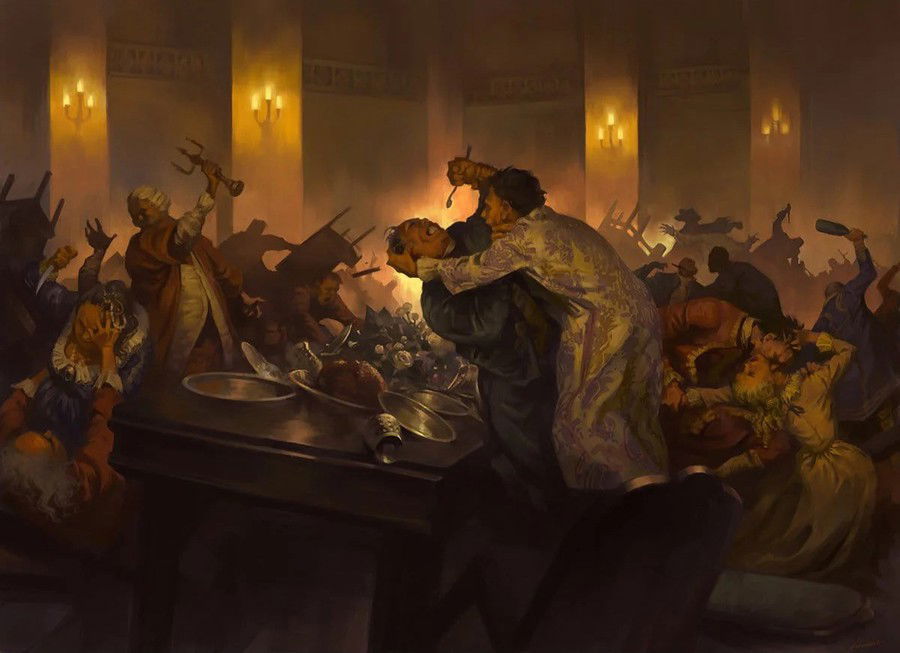
Without further ado, let's go!
Focusing on a Single Player Since the Beginning
At the table, the power balance between different players is an important factor. As there are typically four or more players at the table, Commander stands out because of its political nature and because each player will have to manage threats efficiently.
In many cases, a player (or even more than one), may concentrate their efforts on eliminating a single opponent, particularly when this player becomes a big threat (which is completely understandable logistically).
However, targeting a single player since the beginning of the game and chasing them is even more problematic than the initial threat they represent. This might even seem a viable strategy initially, but it creates a negative experience, both for the player you attacked and others.
Why Is This Problematic?
It Breaks the Natural Balance of the Game: Casual boards prosper with uncertainty and chaos. When a player is targeted persistently by another, the natural balance of the entire table is broken.
It Creates Resentment: When you focus exclusively on a single player, you might be encouraging them to retaliate against you in the future. In Commander, alliances and rivalries are common, so targeting a player from the get-go could encourage them to get revenge later on, either in the same match or the next one.
It Makes the Targeted Player Uninterested and Frustrated: The target player can feel frustrated and isolated when you use this strategy, particularly if they don't have time or resources to answer your attacks. This could ruin their fun and affect the overall atmosphere of the game. No one wants to be eliminated early on or feel as if they have no chance of defending themselves.
It Often Makes You Lose Other Tactical Opportunities: When you concentrate all your efforts on a single player, other players may take the opportunity to grow unnoticed, become bigger threats, and eventually even win the game without much issue. Focusing on a single target may blind you to the other threats that may arise during your matches.
How To Avoid Doing This
Instead of focusing on a single player, try to balance your actions by attacking different players as they introduce other threats. Keep in mind that Commander is a social game, and politics plays a significant role in it. Constantly assess the game state and keep your options open.
Communicating with other players and forming temporary alliances can often be more efficient than simply attacking someone restlessly.
Furthermore, consider the impact your actions will have on your collective experience. If you notice that you're being extremely aggressive to a single opponent, reflect on why that is and question yourself if it's truly worth it (from a social standpoint).
Taking Too Long To Play Without a Logical Reason
We've all been there: a player at the table is taking an eternity to make a decision and play. Which land to play, which card to get with a Demonic Tutor, or how to order the cards on top of their deck with Sensei's Divining Top…
This could happen because they're not familiar with their deck, don't have a lot of experience in general, or are purely indecisive. Slow-playing in a Commander match may quickly turn a fun match into a boring experience. This format already naturally takes a while, as it is played with multiple people and includes complex interactions. When a player takes too long to play without a clear reason, they break the game flow and negatively affect everyone on the table.
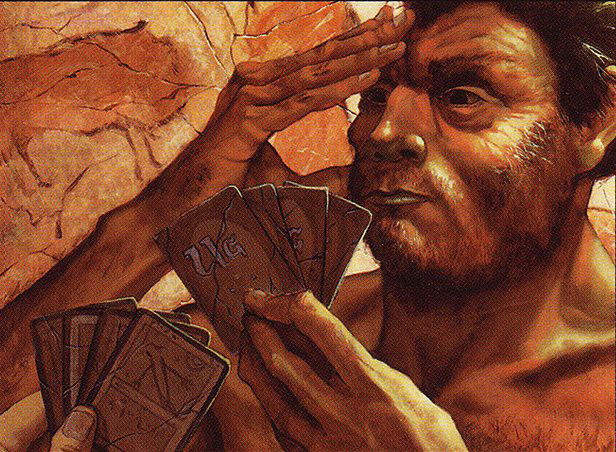
Before we move on, we need to define what is a "logical reason". Someone might be taking too long to play because they don't have a lot of experience and are beginners, or because they don't know the rules or mechanics involved in that particular game state. We can't consider these players toxic because of this; after all, they're still learning how to play. Taking too long to play in these cases is completely understandable, and it's up to the other experienced players at the table to remain friendly and help them as best as they can.
So, this topic only refers to cases when a player knows the game and their own deck, but are taking too long to play deliberately because they can't decide what to do.
Why Is This Problematic?
It Breaks the Game Flow: Multiplayer matches tend to last longer, which is typical and expected. However, when a player takes too long to play, the game flow - which is already slow - becomes tedious. Long breaks may make other players impatient and uninterested.
How To Avoid Doing This
There are many ways to avoid taking too long and keep the game going:
Plan your Plays During Other People's Turns: When others are playing, take this opportunity to think about what you'll do when it is your turn. Consider your options, think about possible answers, and be prepared to act fast. This doesn't mean rushing through your decisions, but rather being prepared to take informed decisions efficiently when it is your turn to play.
Be Realistic About Your Options: In some cases, people take too long because they're analyzing every possible move more than they should. Considering all your options is important, but sometimes picking the best play available and moving on is more productive. If one strategy doesn't work out, you'll have other opportunities in the future.
Simplify Your Decision-Making: If you're playing a particularly complex deck, practice with it often to get familiar with its interactions and combos. This way, you'll need less time to analyze each card as you play. Furthermore, try to simplify your train of thought when you play, and focus on the plays that truly matter at that moment.
Warn Others If You Need More Time: Keep in mind that, while you're thinking, other players are waiting. Respecting other people's time is a way to show how you care for them, and keep the whole table involved in the match. If you need extra time, warn other players and briefly explain what you're thinking about. This will keep an open line of communication between you and then, and avoid frustrations.
Complaining About Other People's Plays
Your opponents' strategies will typically directly affect how you progress in the game. After all, with so many players at the table, everyone's actions will inevitably interfere with everyone's strategies. However, complaining excessively about other people's plays will not only ruin the atmosphere but also ruin everyone's fun.
Feeling frustrated when your plans are interrupted is natural, but expressing them constantly or too intensely may cause more problems than solve them.
Why Is This Problematic?
It Negatively Impacts the Atmosphere: Let's be honest. No one (or at least most people) don't take criticism well. Constant complaining can make people feel as if they need to justify their own actions… and they'll most likely not be so friendly at this point. This may easily escalate to an argument, and create a tense, uncomfortable environment. The atmosphere of the game will be less pleasant when the focus is not on having fun and creating strategies, but complaining. A Commander table should be fun and challenging, not dominated by negativity and stress.
It Makes Other Players Unmotivated: In other cases, instead of simply feeling the need to justify themselves, someone, when deeply criticized, can simply feel isolated, and in turn feel as if they're "doing something wrong" for simply playing the game. This can make them hesitant when it's their turn, as they'll be scared of being criticized again or making others annoyed. This behavior will eventually make them feel insecure, limit their creativity, and make them less inclined to explore other strategies. In the end, everyone loses when a player feels they can't explore their strategies freely, and this will impact the quality of your matches and their rhythm.
It Disrespects Other People's Strategies and Decisions: Constant complaining can be seen as disrespecting other players' decisions. Each player has their own strategy and game view, and criticizing their decisions repeatedly shows you don't care for the different approaches that make Commander so diverse and interesting. Furthermore, many players invest time and effort into their decks and plays, and complaining about them minimizes these efforts.
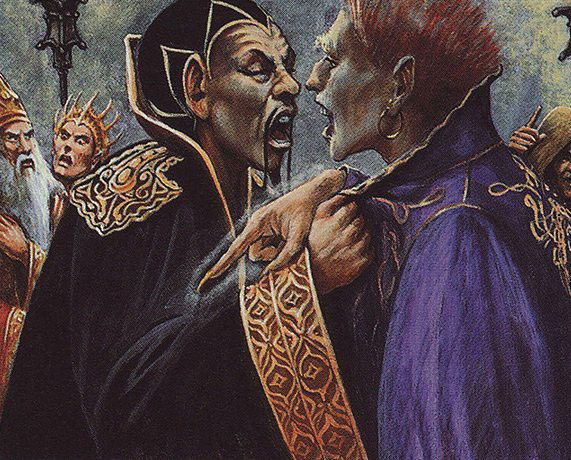
How To Avoid Doing This
Accept Interferences: At Commander tables, other people's plays will inevitably affect your strategy. Accept this is part of the game, and think of adversities as opportunities to adapt and overcome new challenges.
Control Your Frustration: Feeling frustrated in competitive games is normal, but keeping yourself cool and avoiding exaggerated reactions is critical. Keep in mind that the goal is to have fun with other players, and, if you need to say something, do it as nicely as you can.
Value Diversity: Commander celebrates diverse decks and strategies. Instead of criticizing, value each player's creativity, and promote a respectful, community-focused environment.
I'll Answer By Conceding!
You know when you pick an opponent to attack with your Yuriko, the Tiger's Shadow, and then when they realize they can't block, they famously say, "I'll answer by conceding!", just so you don't trigger your abilities?
Conceding is part of the game, but understanding the right time to do it is crucial. This keeps the game dynamic and respects other people's strategies.
Why Is This Problematic?
It Breaks Game Flow: Conceding in the middle of an important interaction disrupts the game flow abruptly. The interactions between cards and abilities are many times linked, and their effects often depend on a specific timing. When a player concedes during one of these interactions, they interrupt how plays resolve, which can create confusion regarding the game state and the effects that should be happening. This may lead to arguments about how to deal with this situation and even force you to "unplay" something, which compromises the game flow and just messes everything up.
It Makes Other People's Strategies Unstable: Conceding directly affects other people's strategies. For instance, if someone concedes to prevent an opponent from finishing a powerful play or escaping a mass removal, this may drastically change how their play resolves, and maybe even disrupt the balance of the match. The resources and cards other players dedicated for that interaction are wasted, which can make them feel frustrated or even make the entire play feel unfair.
How To Avoid Doing This
Pick The Right Time To Concede: If things are getting worse for you, and conceding seems inevitable, wait until you can concede without interrupting an important interaction. Ideally, concede before your turn starts or after a significant play resolves completely. This way, you will not interrupt the game flow abruptly.
Consider The Consequences of Conceding: Consider how this decision will impact other players' strategies. If you notice this decision will impact someone unfairly, consider resisting a bit longer, or until you can tell them you plan to concede after the interaction in question resolves. This will let other players adjust their strategies, and you won't catch them by surprise.
Using Decks with Different Power Levels
One of Commander's greatest challenges is defining and aligning the power levels of all decks at the table. Commander is very diverse: it has space for casual, unassuming strategies as well as extremely optimized and competitive combinations. However, when decks have very different power levels, the game experience might not be that interesting.
A deck that is way stronger or way weaker than other decks can make everything less fun. They can either dominate the match completely, or just be eliminated early on because they have no shot at competing with the other decks.
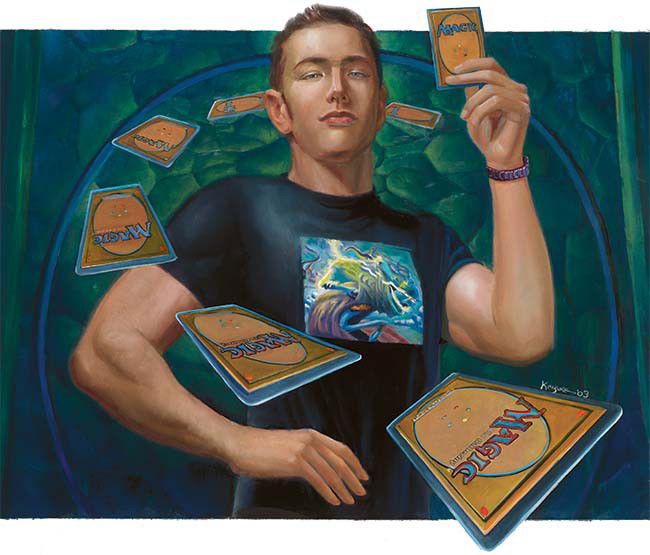
Why Is This Problematic?
It Makes the Match Unbalanced: When a player brings a deck that is a lot more powerful than the other decks, they can quickly dominate the game, and others will have no shot to compete against them. This makes the entire match uninteresting and unbalanced, and it goes against the point of this format, which is to promote fun, interactive multiplayer matches.
It Makes Players Frustrated: A deck that is too weak can also make its pilot frustrated, as they'll feel as if they're just watching the game, and can not actively participate in it.
It Negatively Impacts Politics: Drastically different power levels may make politics distorted and force players to ally themselves to the strongest player or ignore the weakest player. Both scenarios make the match less tactically complex and less satisfying, which makes the game less dynamic and interesting.
How To Avoid Doing This
Discuss Which Power Level You Want Before the Match: Before you start playing, discuss the power level of the decks you brought. Decide which type of match you want, casual or competitive, to make sure everyone brings balanced decks and make the experience fun for everyone.
Bring Different Decks: If possible, bring decks with different power levels so you can adapt your gameplay to your group. This way, you'll be able to adapt to casual or competitive matches, and keep the game balanced and pleasant.
Be Honest About Your Deck's Power Level: Be honest about your deck's power level and your intentions. Being clear with other players prevents surprises and helps you align your expectations, which, in turn, makes the match more fun, and fair.
Using "Anti-Fun" Strategies or Mechanics
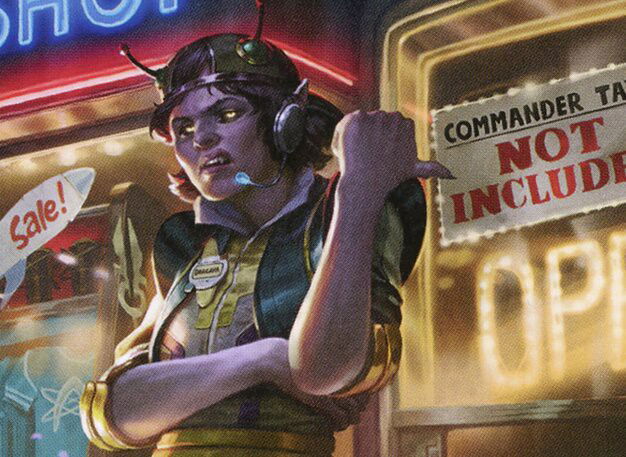
There are no written rules about what makes something "anti-fun", but, certain strategies, like Stax or mass land destruction, can be considered harmful to everyone's fun. These strategies usually prevent opponents from actively participating in the match, which makes everything frustrating and unbalanced.
When someone focuses on tactics that drastically prevent others from interacting with the game, Commander is not a collective fun experience: instead, it becomes a unilateral, frustrating battle.

Why Is This Problematic?
It Limits Other Players' Experience: These decks typically prevent opponents from playing, either by blocking them or creating infinite combos that end the game abruptly. They might be efficient to win, but they often make matches frustrating and boring for certain groups.
It Makes Matches Unbalanced and Players Unmotivated: When someone uses an "anti-fun" strategy and other players can't deal with it, the balance of the match is disrupted. This makes other players unmotivated and may even make them lose interest in playing again.
How To Avoid Doing This
An easy solution would be to simply "not play anti-fun decks", but Commander is about diversity and freedom, so defending this type of position doesn't make sense. Instead, consider the following points if you truly appreciate Stax and other decks:
Avoid Infinite Combos that Don't Have a Purpose: Infinite combos and preventing other players from playing are common sources of frustration in Commander. Use these tactics only if you want to end the game or make unbalanced matches balanced, and avoid using them repeatedly without a clear motive. Prefer strategies that promote interaction instead of only suppressing other players' strategies.
Communicate With Your Table: In regular groups, discuss game styles and what are everyone's expectations. This will align your expectations regarding competitive levels and avoid unpleasant surprises. If you're playing potentially frustrating strategies, be clear about it and be open to adjusting them if you want to keep the experience fun.
Diversify Your Win Conditions: Include multiple win conditions in your deck that are not infinite combos or preventing your opponents from playing.
Final Words
Adopting these good habits and being conscious about how your choices impact your experience will help you maintain a pleasant, albeit challenging, environment for all. However, these are just a few suggestions and reflections. After all, each Commander table has their own dynamic and culture.
How do you face these situations in your matches? Is there something you'd like to add or share? Tell us your thoughts in our comment section below!
Remember: everyone should have fun. Commander really stands out when the community and respect walk side by side with competition. May your matches be full of good plays and laughter!
Thank you for reading, and see you next time!










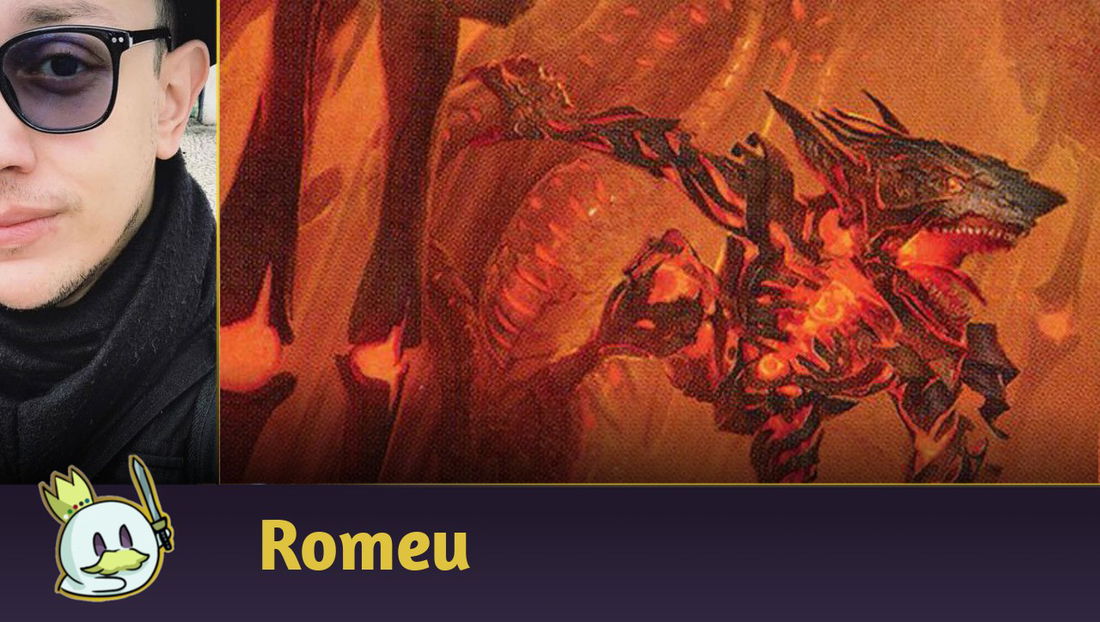



— Kommentare 0
, Reaktionen 1
Sei der erste der kommentiert